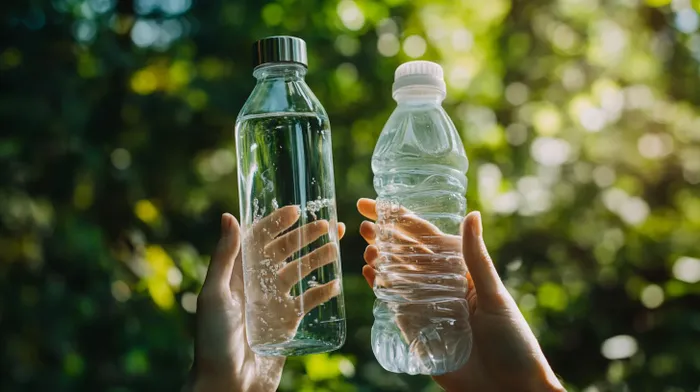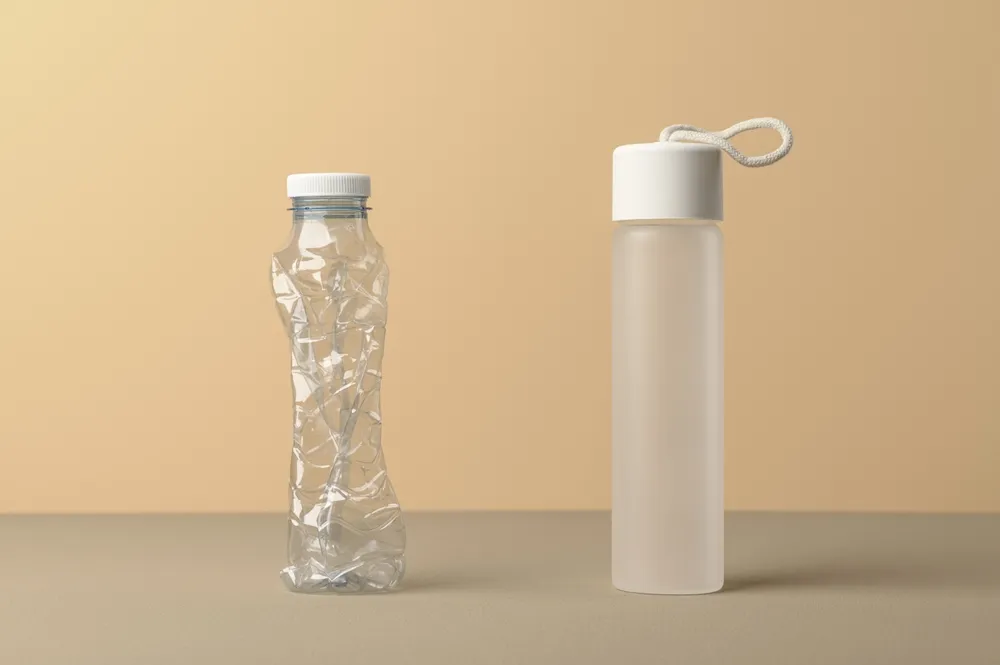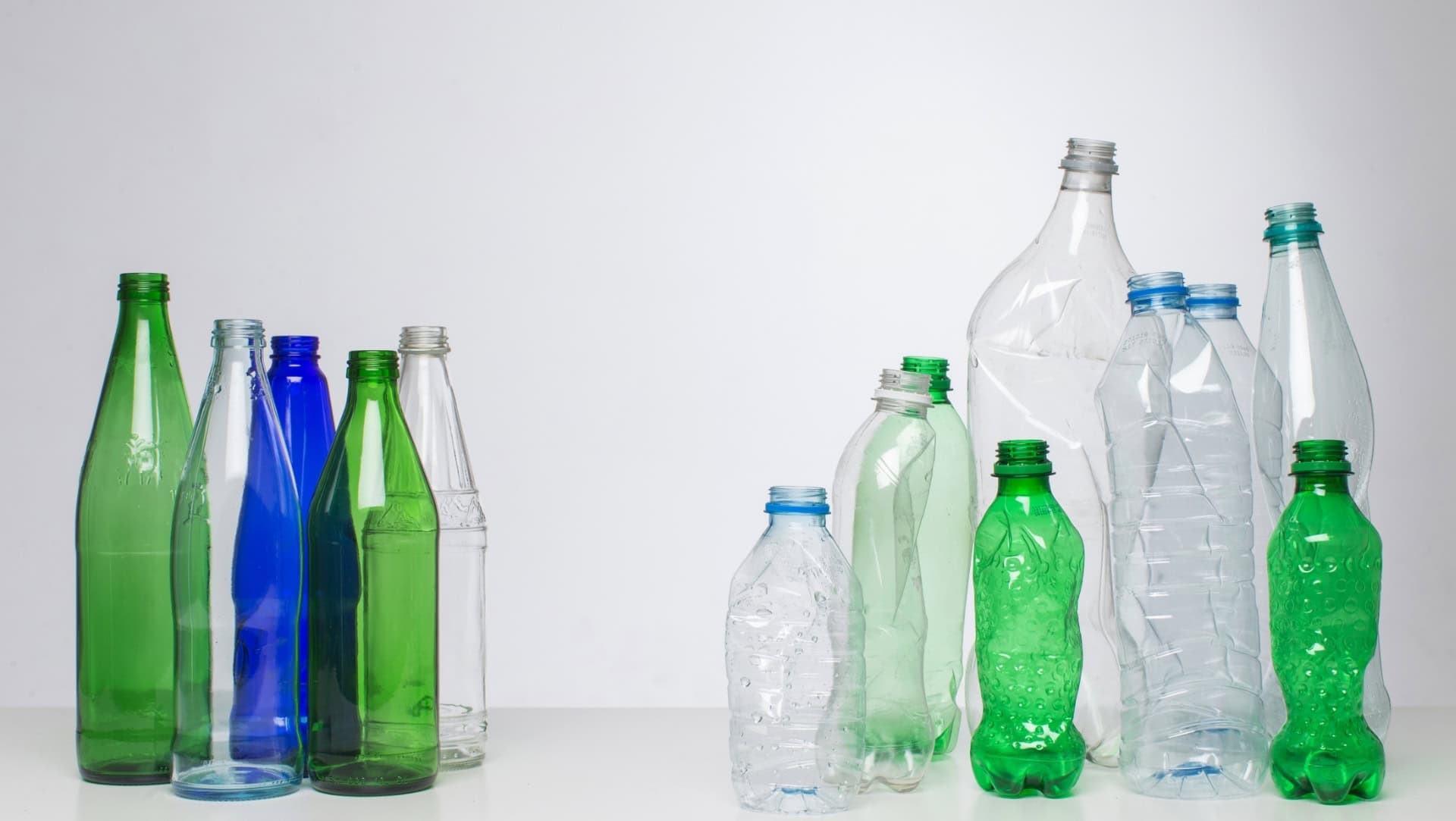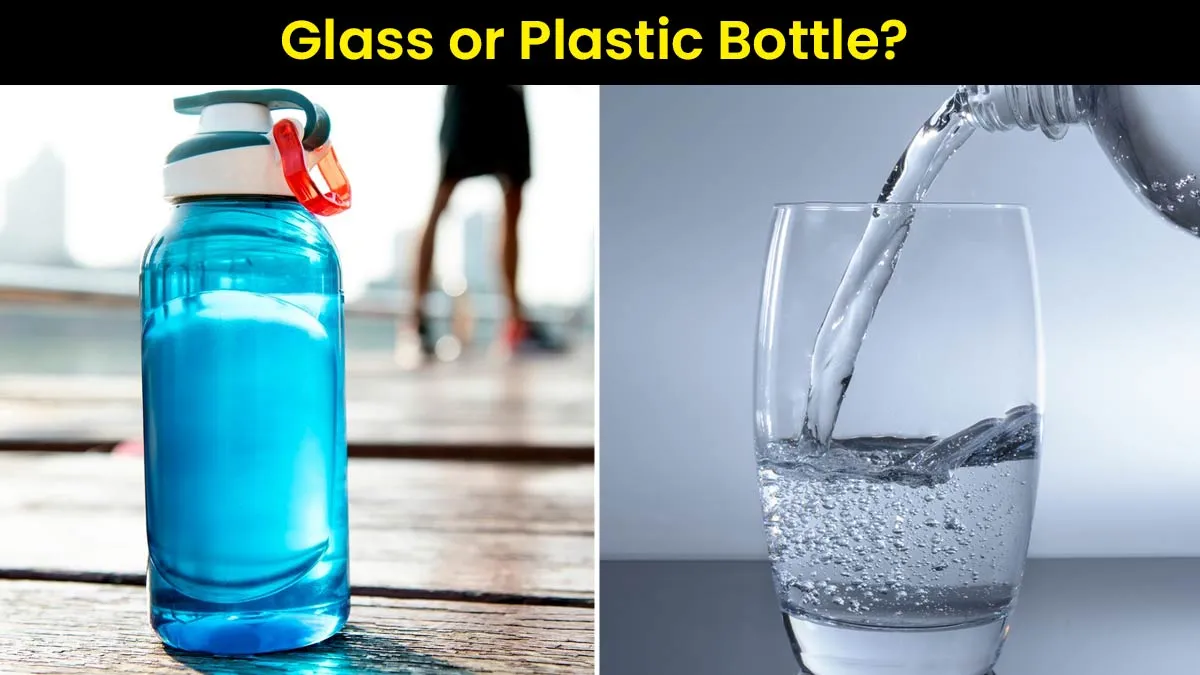In our daily lives, we often take the simple act of drinking water for granted. Yet, have you ever wondered how the choice of container might influence the taste of this essential beverage? When it comes to enjoying a refreshing glass of water, many people have noticed a distinct difference between plastic and glass bottles. The focus of this blog post is to explore the reasons behind why water tastes superior in glass bottles. This comparison will delve into aspects of material composition and potential chemical interactions, providing a scientific perspective on what seems like a straightforward choice. By the end, you may never look at your water bottle the same way again.

Table of Contents
Reason 1: No Chemical Leaching from Glass
When you grab a drink of water, the container you use can make a noticeable difference. Many people find that Water Tastes Better in Glass Bottles. Let’s explore why this is the case.
No Chemical Leaching from Glass
Glass is a stable and non-porous material. This unique quality means it won’t allow chemicals to seep into your water. Unlike plastic, glass acts as an effective barrier. It doesn’t absorb or release odd smells or harmful substances. This stability gives you a purer drinking experience.
Chemical Leaching Data: Glass vs. Plastic
Studies have shown that glass bottles have very minimal chemical leaching. For example, BPA (Bisphenol A) levels in water stored in glass bottles are extremely low, around 0.01 μg/L. On the other hand, water in polycarbonate plastic bottles can have BPA levels of 0.20–0.30 μg/L after just 96 hours. This data clearly suggests that switching from plastic to glass can significantly reduce BPA exposure.
Contaminant Release Findings
Lab tests indicate that glass bottles release almost no detectable contaminants. However, plastic bottles like polycarbonate can leach measurable amounts of BPA and other chemical additives. In fact, water from glass bottles in lab studies has been found to be as pure as high-grade control water, showing no harmful chemical transfer.
Safety Considerations for Glass Water Bottles
Most branded glass bottles are safe for use. However, it’s advisable to choose high-quality, lead-free options. Some colored or low-quality glass may contain small amounts of lead or cadmium. So, it’s best to select trusted brands.
Glass Preserves Water Taste
Plastic bottles can sometimes give water an “off” or plastic-like flavor, especially after reuse or exposure to heat and sunlight. Glass bottles, due to their stable nature and lack of chemical leaching, do not alter the original taste of water.
In summary, the stability of glass means no chemical leaching. And measured BPA and contaminant levels are much lower in glass than in plastic. This helps preserve the purity and natural taste of your water.

Reason 2: Glass Bottle Doesn’t Hold Onto Smells
When you grab a drink of water, the container you use can make a noticeable difference. Many people find that water tastes better in glass bottles. Let’s explore why this is the case.
Glass Keeps Things Fresh and Stops Smell Transfer
Glass helps maintain the original taste and smell of its contents. It doesn’t add any foreign smells. A 2022 U.S. consumer report supports this. In a blind taste test with 500 people, 76% felt water from glass bottles tasted fresher and cleaner than water from plastic.
Lab Tests: A Smell and Taste Showdown
Lab tests highlight the differences between glass and plastic. Glass has a smell transfer rate of less than 1%. PET plastic bottles, however, can have a transfer rate of up to 27%. This test involved storing drinks like coffee and orange juice for 48 hours at 40°C.
Plastic bottles tend to absorb smells more easily. They often retain or transfer leftover smells from previous drinks. This problem seems to worsen with more use or when exposed to heat.
Why High-Quality Glass is Recommended
Borosilicate glass, often used for baby bottles and high-end drink containers, is a good choice. It resists scratches and stains well. This keeps it clear and free of smells, even after multiple washes.
The perfume industry nearly always chooses glass. This is because glass doesn’t react with or absorb scent particles. This preserves the original fragrance as intended.
For food and drinks, glass is the top pick. This is especially true for products where maintaining the original smell is crucial. Examples include spirits, wine, and certain medicines.
Plastic Bottles Don’t Protect Against Odors
Even after a good wash, plastic bottles like PET and HDPE can hold onto smells. This is common with strong drinks like juice or soda.
If you store water in plastic for a long time or leave it in the heat, you might get a plastic taste. This is an issue not encountered with glass.
In summary, using glass helps keep your water fresh and pure. Its solid surface doesn’t transfer odors. This is supported by consumer reports, lab tests, and the preferences of major industries.

Reason 3: Preservation of Natural Water Flavor
Glass bottles are inert and do not react with water. This means you get to taste pure water as it should be, without any added flavors, smells, or chemical aftertastes.
How Glass Maintains Water’s True Taste
No Chemical Leaching: Glass doesn’t release chemicals like BPA into water. This keeps the flavor pure, especially when bottles get hot.
No Odor or Flavor Absorption: Glass doesn’t retain smells or flavors from previous contents, ensuring water always tastes fresh.
Award-Winning Taste: Brands like Mountain Valley Spring Water, which use glass bottles, have won 19 awards at major international water tasting competitions since 1991.
Protects Source Integrity: Brands like Zagori use glass to preserve the unique mineral flavors from natural springs.
Consumer Preference: People sensitive to aftertastes often say water from glass bottles tastes crisper and cleaner.
Real-World Examples
Zagori Natural Spring Water markets its water in glass to highlight its pure taste and mineral content from Greek springs. Mountain Valley Spring Water uses refillable glass jugs and consistently wins taste awards. Vendor taste studies also show that people rate glass higher for taste, especially with natural spring water.
Health and Practical Benefits
BPA-Free and Non-Toxic: Glass is free of BPA and other toxins and is safe for dishwashers.
No Health Risks from Chemicals: Intact, lead-free glass bottles pose no chemical exposure risks.
Quick Glass vs. Plastic Flavor Comparison
Feature | Glass Bottles | Plastic Bottles |
|---|---|---|
Chemical Leaching | None | Possible (BPA, others) |
Odor/Flavor Absorption | None | Common |
Taste Preservation | Superior | Often compromised |
Awards/Expert Preference | Multiple major wins | Rare or none |
Health Risks | None (if intact) | Known risks |
In summary, glass bottles excel at keeping water tasting pure. They prevent chemical reactions and protect the water’s natural minerals. This view is supported by food experts, leading brands, and water enthusiasts.

Reason 4: Glass Bottle Keeps Water Fresh Over Time and at Any Temperature
Glass bottles are stable and work well with different temperatures. They last a long time and help keep water pure and safe.
Chemical and Flavor Stability at Any Temperature
Glass doesn’t react with your drink. It won’t leach chemicals or change how your water tastes. This is true whether you fill it with hot tea or ice-cold water.
Even with big temperature swings, glass keeps your water tasting the same. You don’t get any strange flavors or chemical aftertastes.
Temperature Tolerance: Glass vs. Plastic Bottles
Ordinary glass bottles hold beverages from -5°C up to 70°C. High borosilicate glass is even more incredible. It withstands up to 400–500°C. It also handles quick temperature shifts from –30°C to 160°C without cracking or losing its strength.
On the other hand, plastic bottles are rated for temperatures below 60–70°C. If you leave one in a hot car, the plastic can break down. It might release chemicals like BPA, and this harms both the taste and safety of your water.
Consistency Over Time: No Loss of Water Quality
Glass bottles can last for years if you avoid dropping or hitting them. This way, the water inside stays pure and is not affected by the bottle itself.
Even BPA-free plastics can break down over time. This happens with repeated heating and cooling, which can cause the bottle to leak chemicals.
Bottle Stability Comparison Table
Bottle Type | Temperature Stability | Risk of Taste Change | Chemical Integrity |
|---|---|---|---|
Glass (Borosilicate) | Up to 400–500°C, very stable | None | Non-reactive, no leaching |
Plastic | Up to 60–70°C, unstable at heat | High (flavor, odor) | May leach chemicals, esp. heat |
Stainless Steel | Over 100°C, insulated | Possible metallic taste | Non-reactive, if good quality |
Real-World Examples and Lab Evidence
Scientists use lab-grade borosilicate glass for reactive and sensitive chemicals. This proves how reliable and stable glass is. It manages sudden heat or cold without affecting its contents.
The coefficient of thermal expansion measures how much a material expands with heat. For high borosilicate glass, it’s about one-third that of regular glass. This explains why there’s much less risk of it cracking or shattering from sudden temperature shifts.Well-made glass bottles show no signs of leaching or taste change over many years with some basic care.
My Conclusion: Glass is Better for Long-Term Taste
If you care about the authentic taste and purity of your water, glass is the better choice. Even when left in a hot car or in the fridge, glass bottles perform better than plastic. They keep water safe and tasting pure, whatever the conditions.
Conclusion
Glass bottles offer a superior water tasting experience due to their chemical stability, lack of odor retention, and ability to preserve water’s natural flavor. They maintain water’s purity regardless of temperature fluctuations and stand the test of time without degrading or compromising water quality.
At TP Glass Bottle Manufacturer, we specialize in producing high-quality glass bottles that ensure your water stays fresh, pure, and free from any unwanted tastes or chemicals. Choose our glass bottles for the best drinking experience and to make a sustainable choice for your health and the environment.

